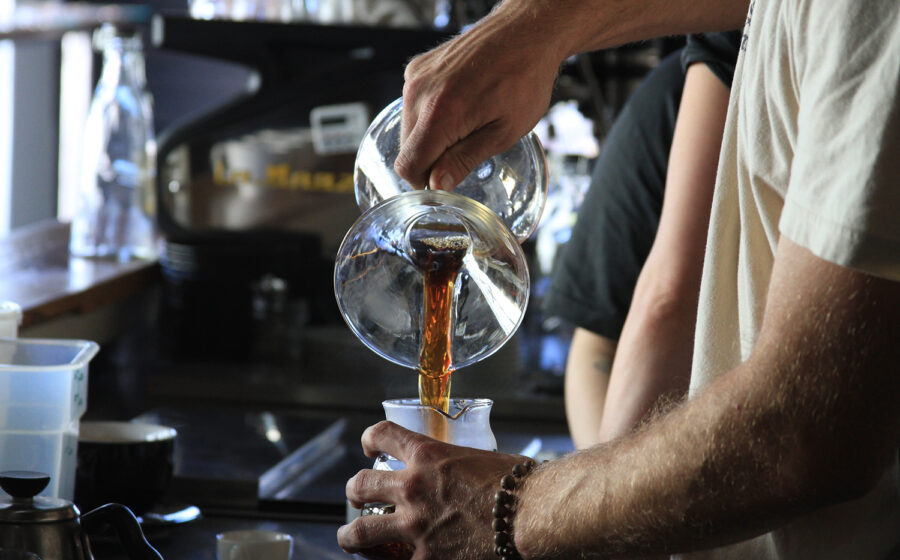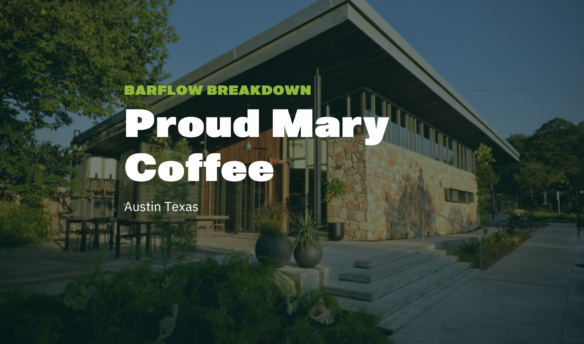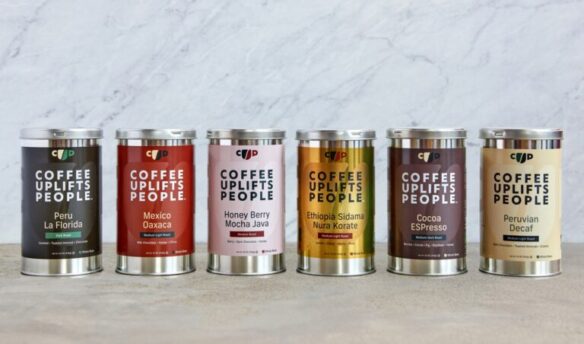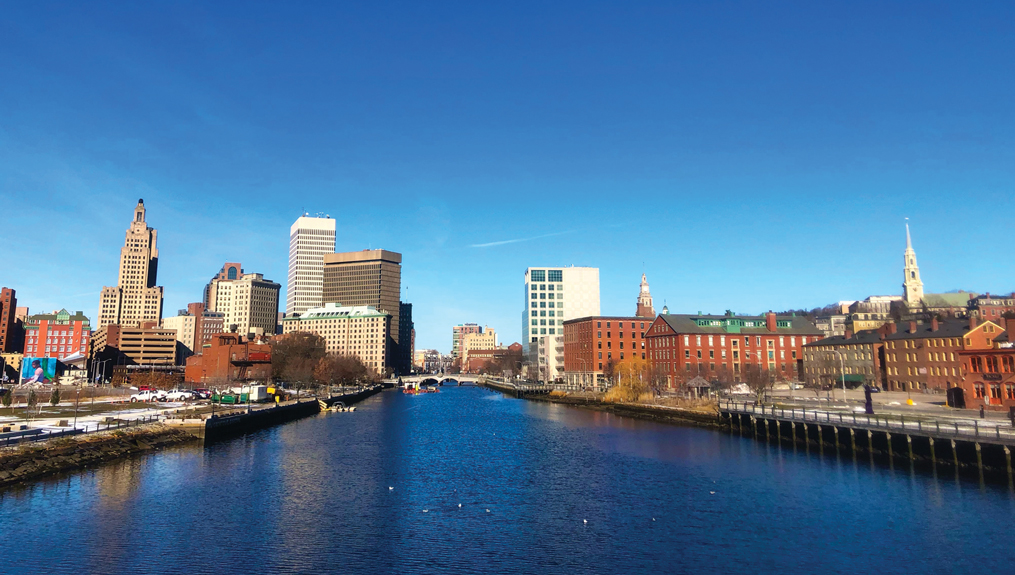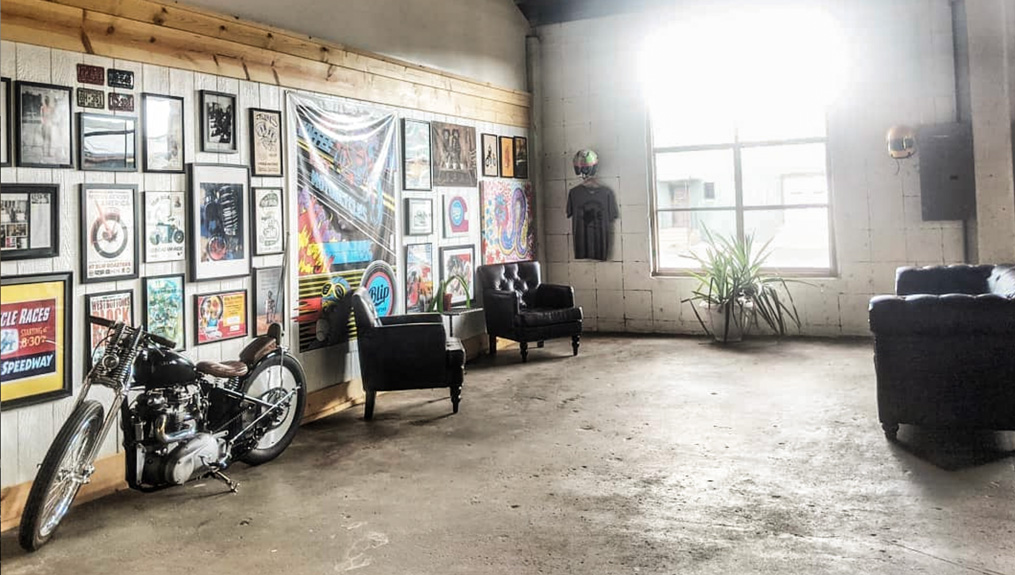[C]hris Martin started roasting organic coffee before it was fashionable, in a barn set aloft his hilly, 100-acre property outside remote Occidental, California. Taylor Maid Farms—now one of the West Coast’s largest retailers of organic coffee—has long since moved out of the barn, but it has remained rooted to those earthy beginnings—a common practice in verdant Sonoma County. This summer, on the heels of the company’s 20th anniversary, the eco-friendly roaster opened its long-awaited flagship café and headquarters in Sebastopol’s farm-chic Barlow, a former apple-processing plant turned artisanal business community. Complete with repurposed redwood counter, upcycled windows and rusted tin décor, the new location is also home to a commercial roastery (visible to customers from the café’s mezzanine) and a coffee lab. Plans for a second retail location in San Rafael are already in the works. So, how does an independent roaster like Taylor Maid stay locally rooted while continuing to expand?
Q: Taylor Maid made its original home in the Barlow, before the building was modernized. How did you end up back there?
A: We started in [the Barlow] but at the other end, and it was just a warehouse. Then we moved into town more, to a location with more visibility in a nicer building we could bring clients to. Then the Barlow project developed, and they wanted us to come back there, so we kind of ended up in the same old building. This Barlow project is really going to create a whole new vibe for Sebastopol, which has never really had a tourist attraction. Now Barlow has Kosta Browne Winery, Woodfour is opening up a brewery, Zazu is doing really good food, there’s a Zen center and [local natural-food store] Community Market is coming in, so we’re creating a whole new village and the theme is to create and sell your own products. No chains are allowed—we’re trying to keep it really local and handcrafted.
Q: Taylor Maid has been a successful enterprise for two decades without a storefront. What made you want to finally open up shop?
A: We had this great program, the can refill: You bring your coffee can in and re-use it and we give you a dollar off. It’s not really about making a buck, it’s about supporting a company that is using a can instead of plastic bags. It went really well, but over the years I decided to get involved again instead of being more of a silent partner, and this has always been what I wanted to do. My vision of the company from day one has been to do a café looking over the roastery area and have a cool place to hang out. It’s tough being wholesale because you always rely on your business partners to serve your coffee the way you want to have it served, and as we all know, to do a really good job you have to take it really seriously. When you’re wholesale you can’t put all your varietals out there because it’s too hard to do it for four months then pull it off and put another one out. So in the shop we can offer really the full array of regions that we’ve always wanted to.
Q: When you first purchased the farm, you had a mind to craft herbal beers. What drew you to coffee roasting instead?
A: The economy was up and down, interest rates were up and down, so I was looking for a business that would be more sustainable throughout. I figured people would drink beer or drink coffee even if they couldn’t go to Hawaii on vacation. But beer brewing is really expensive to set up—you need a couple hundred thousand to do it right. And I took a ride up [to Portland] and saw the coffee scene up there and thought, “Gee, it’s just a matter of time before that gets down to California where we’re at,” and because of the farm, I wanted to do everything organic and be as friendly as I could to the environment.
Q: You’ve been committed to sourcing 100 percent organic coffees from the beginning. What challenges has that created along the way? Is it easier to find organic coffee farms now than it was 20 years ago?
A: Oh yeah. [At first] we had five to seven countries to work with to come up with all the blends. I didn’t know it at the time, but we worked really hard on coming up with the ability to have a good product. And back then, 20 years ago, nobody cared about organic. We had to sell it as locally roasted, micro-roasted, small batch—just as really good premium coffee, because I had to sell it for $1 more per pound in stores. Now everything is organic, though we’re kind of running into some issues with rust. We just bought into a coffee farm in Nicaragua, Finca Java, and with our name, that ties us into the farm part a little better. I figured if we have our own personal source—a connection from farm to the end product all within one company—it seemed to make good sense.



